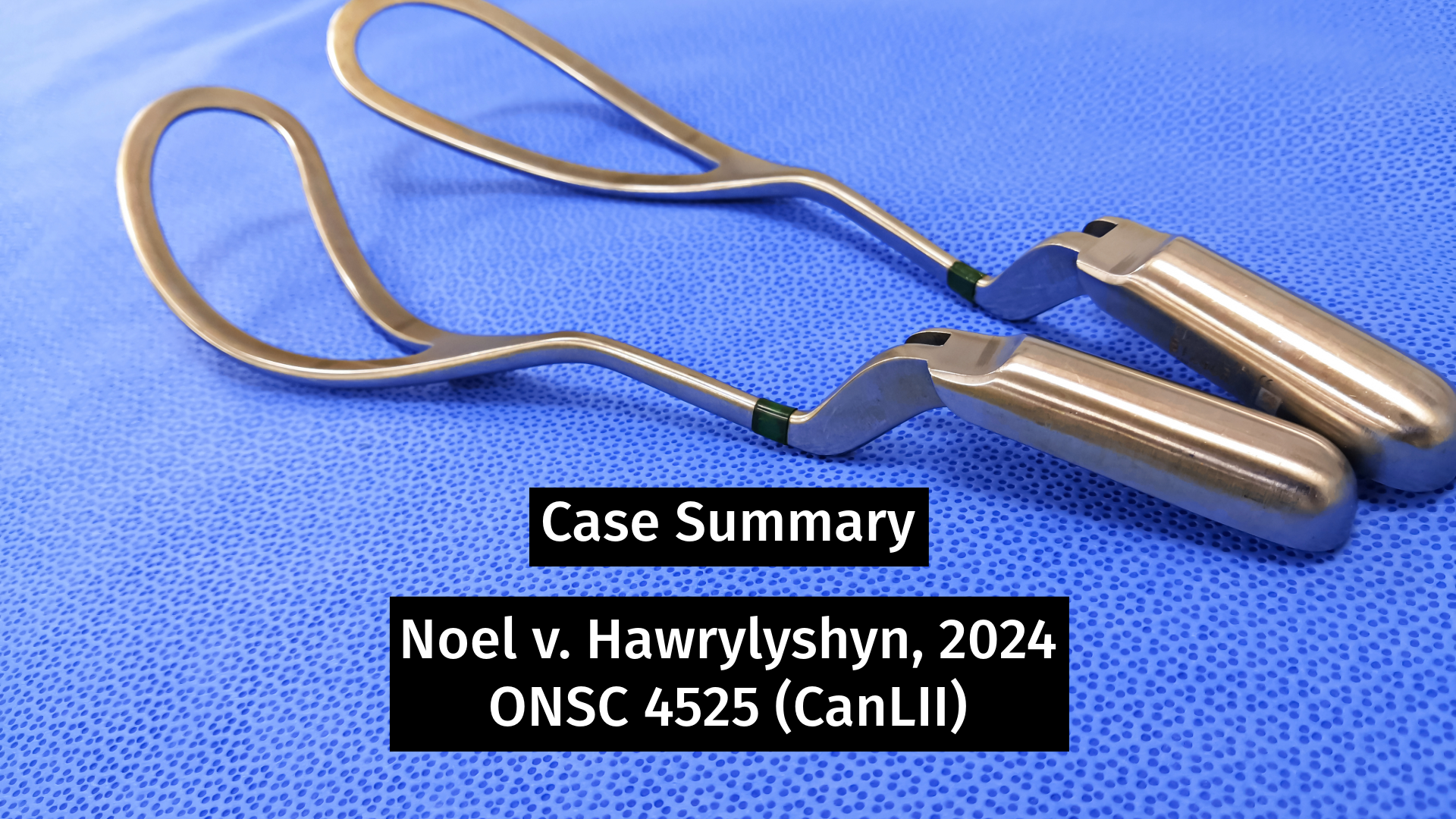On February 2, 2023, the Ontario Court of Appeal upheld a class action trial decision from an infectious disease outbreak at the Rothbart Centre for Pain Care Ltd. (“the Rothbart Centre”) in Toronto.
The appellant, Dr. Stephen James (“Dr. James”), is an anesthesiologist who administered epidural injections into the area around the spine as a pain relief treatment. After receiving an injection, some of his patients subsequently developed meningitis, an abscess in or around the spine, or other serious infection. The outbreak was discovered by Toronto Public Health officials in November 2012.
An extensive investigation concluded that the outbreak was caused by inadequate Infection Prevention and Control (“IPAC”) used for the injections, referring to practices and procedures that are intended to prevent or reduce the risk of transmission of microorganisms in health care settings.
No specific deficiency could be scientifically demonstrated to have caused the spread of infection. However, the rate of infection associated with Dr. James’ epidural injection practice was many times greater than the reported risk of infection for such procedures generally, which was inconsistent with the use of appropriate IPAC. Furthermore, Dr. James was found to be colonized with a rare strain of Staphylococcus aureus (“Staph A”) bacteria, CC59, that matched the bacteria infecting six of his patients.
Anne Levac (“Ms. Levac”), was one of Dr. James’ patients who suffered an infection. She launched a class action in September 2014 on behalf of approximately 20 former patients of the Rothbart Centre who received injections from Dr. James.
The claim alleged that Dr. James, along with the now-defunct Rothbart Centre, its medical director, and its nursing staff, caused the infectious disease outbreak by implementing substandard IPAC, failing to report or investigate the infections, and failing to remediate IPAC after learning of the initial infections.
Following a five-week common issues trial, the trial judge found against Dr. James on all the common issues: negligence (duty of care, standard of care and breach, and causation), fiduciary duty, limitation period, and entitlement to punitive damages. In particular, the trial judge concluded that causation was proven in respect of the Genetically Linked Patients. For the remaining patients, he drew a rebuttable inference that Dr. James’ breach of the standard of care for IPAC caused the infections, based on the statistical evidence showing that Dr. James exposed his patients to a risk of infection that was either 49 or 69 times higher than for patients not exposed to his substandard IPAC.
When the class action proceeds to the individual issues phase, most claimants must still establish that they likely contracted their infection because of Dr. James’ breaches. However, they will each benefit from the common presumption that any patient who developed an infection following an epidural injection performed by Dr. James was infected because of his negligent IPAC. This finding, which arises from the circumstantial evidence including the statistical rarity of such infections when proper IPAC is employed, establishes prima facie causation for each Class Member, subject to further evidence to the contrary.
Dr. James essentially appealed all the liability findings made by the trial judge. He argued that although the common issues were certified, based on the trial evidence they could not be answered on a Class-wide basis across the entire Class Period, given the unique interactions between Dr. James and each of his patients.
According to Dr. James, the trial judge also erred in articulating and applying the legal tests for negligence, breach of fiduciary duty, and punitive damages, relieving the plaintiff of her legal burdens and using the class action regime as a shortcut to proof. It was further argued that the trial judge exercised the spent doctrine of res ipsa loquitor and worked backwards from an outcome to find liability. His reasons breached procedural fairness by failing to address all of Dr. James’ defences..
The Court of Appeal unanimously rejected the arguments made by Dr. James and dismissed his appeal.
Decision Date: January 16, 2023
Jurisdiction: Ontario Court of Appeal
Citation: Levac v. James, 2023 ONCA 73 (CanLII)



